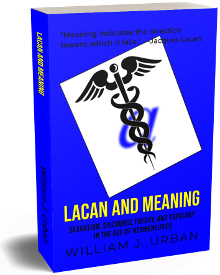Re-reading Hegel:
Meaning and Subjectivity in the
Phenomenology of Spirit
WILLIAM J. URBAN
ABSTRACT
Standing at the apex of the late 18th – early 19th century German Idealist tradition, contemporary thought has all but universally dismissed the philosophy of G. W. F. Hegel. Against this current this paper travels with those select few who today call for a serious re-examination of Hegel as the sought after theoretical foundation for true radical critique. To that end we unabashedly utilize Žižek's persuasive work to organize a re-reading of the Phenomenology of Spirit, Hegel's most well-known and arguably single greatest work. We begin with its first chapter on sense-certainty to find that Hegel's discussion of language is still highly relevant; then travel through its key third chapter on the understanding to put it to use to undermine our continuing and highly counterproductive obsession with deep meaning; only to end with the mother of all Hegelian topics, Absolute Knowing, to find that it is not some absurd egotistical stance but quite possibly the most modest position a modern subject can assume. Stopping along the way to reconsider a few other 'figures of consciousness,' this strategy – organized as it is under the twin topics of meaning and subjectivity – amounts to a non-hermeneutical phenomenological approach to the Phenomenology which simultaneously endeavors to theorize such a textual approach in general.
Lacanian-themed puzzles

